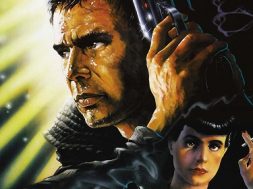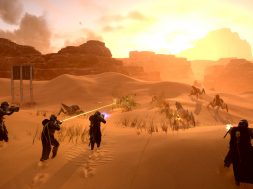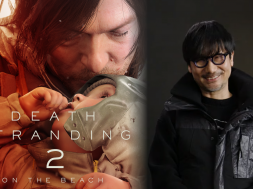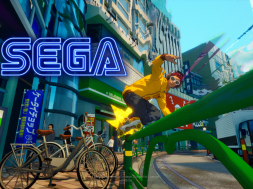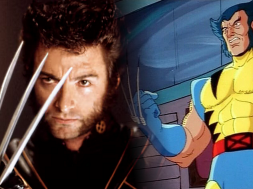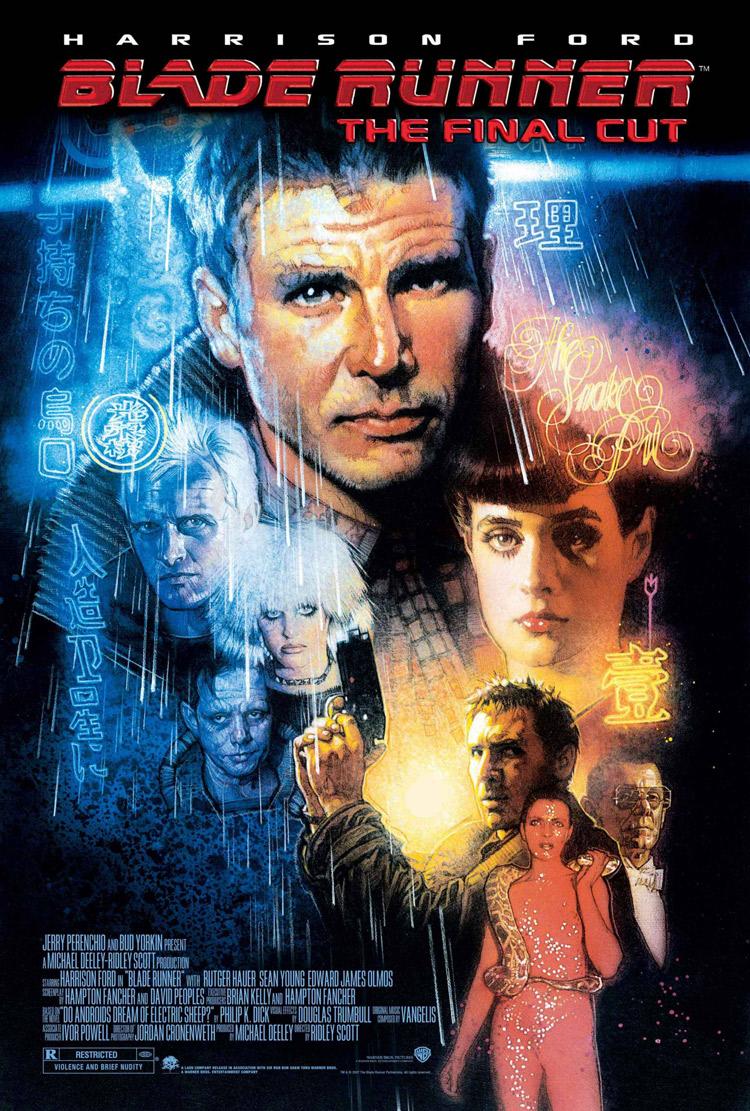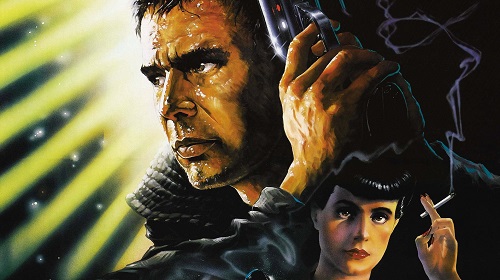
“I’ve… seen things… you people wouldn’t believe…”
The first time I saw Blade Runner, I was too young to grasp a lot of what was going on. I was maybe 9 or 10 and back then it was little more than a flashy 80s action flick to me. I had no idea how important it was to Sci-Fi, or how important it would eventually be to me. Back then it was just a case of Rick Deckard being the good guy for killing the robots and the robots being the bad guys for killing a few people. I had probably seen it in passing about three other times after that before I finally sat down to really watch it again. It was during that fifth watching, when I was about 14 and getting into computing and AI, that I was finally struck by how powerful the movie was and how complex some of the themes were.
Blade Runner is Ridley Scott‘s take on Philip K. Dick‘s sci-fi masterpiece Do Androids Dream of Electric Sheep? The name change between novel and film comes from William S. Burroughs‘ screenplay of Alan E. Nourse‘s The Bladerunner. The Bladerunner has nothing to do with Do Androids Dream of Electric Sheep? – the reason for the re-titling of the movie is simply down to Scott really loving the name, resulting in him buying out the rights to the movie title.
The movie opens with a sprawling shot of tech-noir San Francisco, in the far future of 2019, all neon and grit. The city looks surprisingly pretty like this, despite how grimy and dingy it has become thanks to years of building over dirt. As the story progresses, we find out about the Replicants, androids that appear human who are used as slave labour in space colonies, and how Replicants who attempt to return to Earth are hunted down and ‘retired’. The police force created to deal with this are known as Blade Runners. It’s through the eyes of one of these Blade Runners, Harrison Ford‘s Rick Deckard, named for René Descartes, that we see the world of humans and Replicants. As Deckard reluctantly searches for the Nexus 6 Replicants, so too are the Replicants on their own quest: to contact their creator Eldon Tyrell. The Replicants are designed to expire after 4 years and, as a result, Zhora, Leon, Pris and their leader Ron Batty, portrayed by Rutger Hauer, want to find a way to extend their own lives.
While, at the surface, Blade Runner could be taken as just a generic action movie, but it also explores a lot of complex themes such as morality, mortality and identity. At first, it may seem reasonable to retire the androids in the wake of the murders as they escaped. However, giving it more thought, these are sapient beings that have been kept as slaves. The people they killed were slave masters. Should these beings that have been created with sapience not be treated with the freedom and respect afforded to humans? To top it off, the main reason for their retirement isn’t even the manslaughter, but their unlawful return to Earth. Why would these people be given intelligence, only to be consigned to a life of slavery? How could that be viewed as okay?
Then, there’s the question of their limited lifespans. Tyrell argues that this is due to technological limitations, but his explanation never comes off as sincere. It seems more likely that this is just another way to keep the Replicants in check. Can we really blame Roy for wanting to live longer? For wanting a life for himself and his partners that so many humans have? I can’t believe that Roy and the Replicants are evil. They’re simply beings at the end of their ropes, running out of time just as they’ve begun becoming aware of themselves, forced to expire just as they’ve developed attachments to things. This is compounded by Deckard’s initial reluctance to accept the job and shortly thereafter in his meeting Rachel, a Replicant that has had memories implanted.
While Blade Runner‘s plot and narrative are both fantastic, they alone cannot make a great movie. Luckily the acting and cinematography is magnificent throughout. Harrison Ford is amazing in his portrayal of a tired out Deckard, while Edward James Olmos‘ oddball Gaff always feels just the right amount of ‘out of place’. Daryl Hannah and Sean Young both do great justice to their Replicants; Pris, whose mind is breaking down and Rachel, who has difficulty coping with being a Replicant due to her implanted memories.
All that being said, though, Blade Runner would not exist as it does without the tremendous job done by Rutger Hauer. His performance as Roy Batty is one of the most outstanding performances in cinema history and his delivery of that closing soliloquy makes me well up every time. Beyond the performance, Rutger added a lot to Scott‘s ideas for the movie and that final speech he gives is entirely his own work. He had felt that the original was too long and full of jargon, so the night before it was due to be filmed, he re-wrote it and surprised everyone with it on the day.
If you’ve never had the pleasure of seeing Blade Runner before, I’ll ask you not to watch this clip here and instead to enjoy the film in full. If you have seen it, then let’s relive those closing words again.
